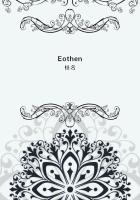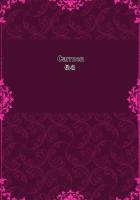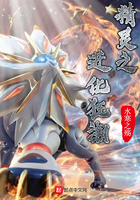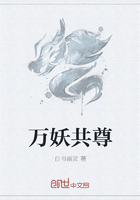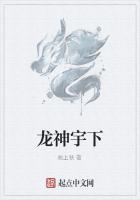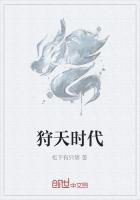Grammatically, number with them is unrecognized. There exist no such things as plural forms. This singularity would be only too welcome to the foreign student, were it not that in avoiding the frying-pan the Tartars fell into the fire. For what they invented in place of a plural was quite as difficult to memorize, and even more cumbrous to express. Instead of inflecting the noun and then prefixing a number, they keep the noun unchanged and add two numerals; thus at times actually employing more words to express the objects than there are objects to express. One of these numerals is a ****** number; the other is what is known as an auxiliary numeral, a word as singular in form as in function. Thus, for instance, "two men" become amplified verbally into "man two individual," or, as the Chinaman puts it, in pidgin English, "two piecey man." For in this respect Chinese resembles Japanese, though in very little else, and pidgin English is nothing but the literal translation of the Chinese idiom into Anglo-Saxon words. The necessity for such elaborate qualification arises from the excessive simplicity of the Japanese nouns. As we have seen, the noun is so indefinite a generality that simply to multiply it by a number cannot possibly produce any definite result. No exact counterpart of these nouns exists in English, but some idea of the impossibility of the process may be got from our word "cattle," which, prolific though it may prove in fact, remains obstinately incapable of verbal multiplication.
All Japanese nouns being of this indefinite description, all require auxiliary numerals. But as each one has its own appropriate numeral, about which a mistake is unpardonable, it takes some little study merely to master the etiquette of these handles to the names of things.
Nouns are not inflected, their cases being expressed by postpositions, which, as the name implies, follow, in becoming Japanese inversion, instead of preceding the word they affect. To make up, nevertheless, for any lack of perplexity due to an absence of inflections, adjectives, en revanche, are most elaborately conjugated. Their protean shapes are as long as they are numerous, representing not only times, but conditions. There are, for instance, the root form, the adverbial form, the indefinite form, the attributive form, and the conclusive form, the two last being conjugated through all the various voices, moods, and tenses, to say nothing of all the potential forms. As one change is superposed on another, the adjective ends by becoming three or four times its original length.
The fact is, the adjective is either adjective, adverb, or verb, according to occasion. In the root form it also helps to make nouns; so that it is even more generally useful than as a journalistic epithet with us. As a verb, it does duty as predicate and copula combined. For such an unnecessary part of speech as a real copula does not exist in Japanese. In spite of the shock to the prejudices of the old school of logicians, it must be confessed that the Tartars get on very well without any such couplings to their trains of thought. But then we should remember that in their sentences the cart is always put before the horse, and so needs only to be pushed, not pulled along.
The want of a copula is another instance of the primitive character of the tongue. It has its counterpart in our own baby-talk, where a quality is predicated of a thing simply by placing the adjective in apposition with the noun.
That the Japanese word which is commonly translated "is" is in no sense a copula, but an ordinary intransitive verb, referring to a natural state, and not to a logical condition, is evident in two ways. In the first place, it is never used to predicate a quality directly. A Japanese does not say, "The scenery is fine," but simply, "Scenery, fine." Secondly, wherever this verb is indirectly employed in such a manner, it is followed, not by an adjective, but by an adverb. Not "She is beautiful, but "She exists beautifully," would be the Japanese way of expressing his admiration. What looks at first, therefore, like a copula turns out to be merely an impersonal intransitive verb.
A negative noun is, of course, an impossibility in any language, just as a negative substantive, another name for the same thing, is a direct contradiction in terms. No matter how negative the idea to be given, it must be conveyed by a positive expression. Even a void is grammatically quite full of meaning, although unhappily empty in fact. So much is common to all tongues, but Japanese carries its positivism yet further. Not only has it no negative nouns, it has not even any negative pronouns nor pronominal adjectives,-- those convenient keepers of places for the absent. "None" and "nothing" are unknown words in its vocabulary, because the ideas they represent are not founded on observed facts, but upon metaphysical abstractions. Such terms are human-born, not earth-begotten concepts, and so to the Far Oriental, who looks at things from the point of view of nature, not of man, negation takes another form.
Usually it is introduced by the verbs, because the verbs, for the most part, relate to human actions, and it is man, not nature, who is responsible for the omission in question. After all, it does seem more fitting to say, "I am ignorant of everything," than "I know nothing." It is indeed you who are wanting, not the thing.

